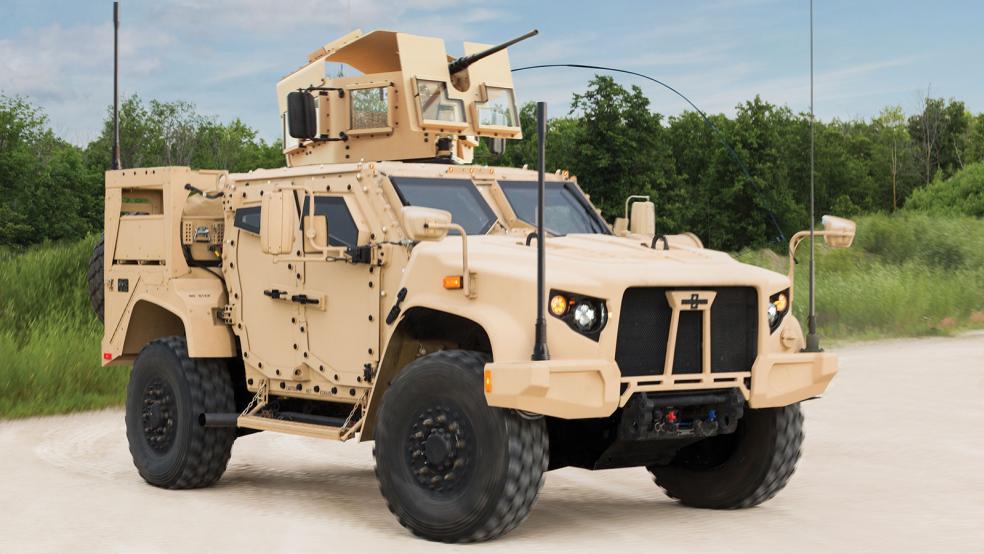The U.S. Army’ $30 billion replacement for its Humvee fleet is getting back on track after a federal court tossed out a request to stop work on the effort until a lawsuit over the program is resolved.
Wisconsin-based Oshkosh Defense can start working on the production of the Joint Light Tactical Vehicle (JLTV) after the U.S. Court of Federal Claims denied a request by Lockheed Martin, which lost out on the massive contract last year, to halt the effort.
Related: The Army’s $30 Billion Humvee Replacement Program Goes Off Road
“This decision is another indication that the U.S. Army conducted a thorough, methodical procurement process, and we are confident that the original JLTV contract award to Oshkosh will be upheld,” Oshkosh CEO Wilson R. Jones said Friday in a statement.
The path forward for the JLTV isn’t completely clear, though. After filing a protest in September over the contract selection with the Government Accountability Office (GAO) – a common move after losing out on such a multi-billion dollar effort – Lockheed took the unusual step in December of filing a lawsuit, prompting GAO to reject the earlier complaint; that larger lawsuit is still going on. But for now Oshkosh can get to work on the Humvee replacement.
Related: The Army’s New $30 Billion Humvee Replacement Could Spark a Fight in Congress
The JLTV could use the good news, since the program took a slight hit in the Defense Department’s fiscal 2017 budget request.
The Army wants to buy more than 49,000 of the vehicle and the Marine Corps has committed to buying 5,500. Both of the service’s ground fleets are in need of a major overhauls after more than a decade of operations in Afghanistan and Iraq.
The two services plan to spend $735 million to purchase 2,020 JLTVs next year, according to the plans unveiled earlier this week. While that is certainly a large number, the Marine Corps request -- $113 million for 192 JLTVs -- is smaller than the 269 vehicles it had originally planned.
Related: The $400 Billion F-35 Still Faces Hundreds of ‘Deficiencies’
Service officials have said the 29 percent decrease was aimed at freeing up funds for other programs, including the Amphibious Combat Vehicle (ACV). Fiscal 2017 budget documents show the Marine Corps is asking for $158 million for the service's next-generation amphibious vehicle, with BAE Systems and Science Applications International currently competing for the contract.
However, work on the ACV has stopped because General Dynamics Land Systems is protesting the service’s decision to award the two competitors contracts to build prototype vehicles.





